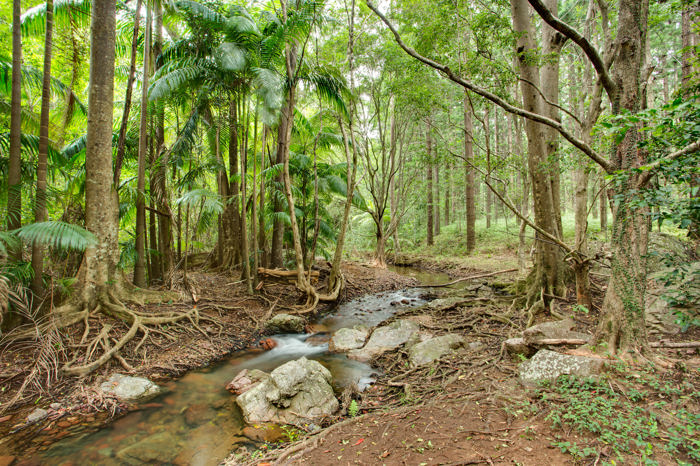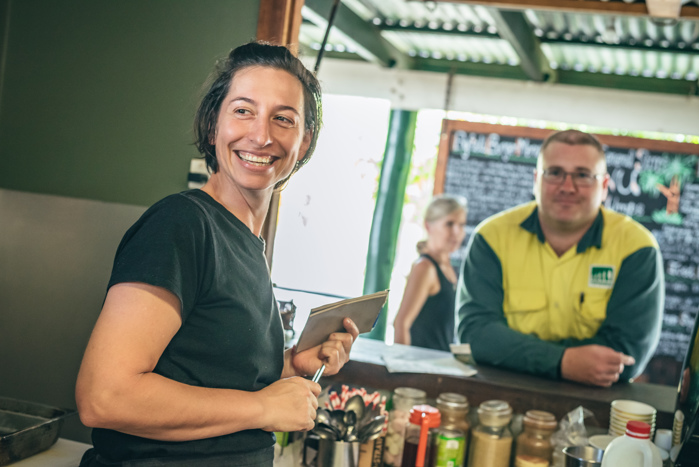It's in our nature
We recognise that good forest stewardship is both an art and a science - it's the nature of what we do. Through environmentally appropriate, socially beneficial and economically viable management of forests we strive to keep the land we manage in a productive and healthy condition for present and future generations.
 For more than a century, we’ve been proving it’s possible to harvest and replant on a continuous cycle to both maximise value for all our stakeholders and ensure our forests continue to thrive forever.
For more than a century, we’ve been proving it’s possible to harvest and replant on a continuous cycle to both maximise value for all our stakeholders and ensure our forests continue to thrive forever.
Our team carefully balances the management our forests to ensure a continued and sustainable supply of timber is available now, and in the future while safeguarding our forests, wildlife and waterways for generations to come.
Our commitment to good forest stewardship is built upon the values of our ethical investors, valued customers, local communities and our passionate people. We are proud of our excellent performance in environmental stewardship, and we are also firmly committed to ongoing scientific research and partnerships to find innovative, meaningful ways to improve our practices.
Stewardship Policy
We are committed to ensuring the economic, environmental and social integrity of our plantation forest management. Read more about this commitment in our Stewardship Policy.
Stewardship Plan
Our Forest Stewardship Plan provides an overview of our forest management systems, operations and practices, and goes into detail about how we satisfy a range of economic, social and environmental objectives. Updated annually, you can view our current Forest Stewardship Plan.
You couldn’t ask for a more sustainable industry than plantation forestry. These sorts of green industries are going to have an important role to play going forward.
Certification
We are fully compliant with the industry’s highest sustainability standards and proud of our independently certified forest management system, which provides the basis of our environmental, social, cultural and economic sustainability.
Certification provides customers, stakeholders, neighbours and other forest visitors with the assurance that our plantation forests are managed sustainably with regard to economic, environmental, social and cultural requirements.
Social license
 In addition to our plantation licence and our Responsible Wood and FSC certifications, our forest stewardship is dependent on another important licence – our social license to operate. This refers to the broad acceptance required from the community for an organisation to operate.
In addition to our plantation licence and our Responsible Wood and FSC certifications, our forest stewardship is dependent on another important licence – our social license to operate. This refers to the broad acceptance required from the community for an organisation to operate.
At HQP we value our social license to operate because it is granted by our local communities and other stakeholders. We recognise our social license is dynamic, because it is founded in beliefs, perceptions and options that may change over time. We acknowledge that our social license reflects societal perception of our past and future behaviour, and must be earned and maintained for each area of operation.
We strive to be a good neighbour, and endeavour to always consider the needs of our community stakeholders in decision-making. We undertake a range of community engagement activities to support and maintain our social license, including:
- swiftly responding to enquiries
- regularly talking to neighbours
- attending community meetings
- hosting drop-in sessions in local communities
- erecting interpretive signage
- conducting site visits
- facilitating Clean Up Australia events in plantation forests
- posting notifications regarding operations that may impact residents and road users
- forming community reference groups to assist decision-making on sensitive topics
- building relationships with Indigenous groups and creating genuine opportunities to work on Country
- leveraging traditional and social media with informative content
- collaborating with local and state government and environmental groups on a range of land management matters
- working with police and other agencies to reduce unlawful activity in plantation forests
- partnering with universities and other researchers on innovative sustainability research projects.
Register as a stakeholder
If you would like to register as a stakeholder and be kept up-to-date about matters that interest you, please use the Contact Us form. Select ‘Register as a stakeholder’ from the subject drop-down and then provide your contact details, including postal and residential address, phone number and email, along with your field of interest, and we’ll stay in touch on matters that match your interest for your local area.
Sustainability
Words like renewable and sustainable usually conjure up images of wind farms and solar panels. But wood – as well as being naturally beautiful and aesthetically pleasing – is the only building material derived from a truly sustainably-managed resource.
A natural carbon sink and undoubtedly one of the most environmentally-friendly materials currently available, sustainable timber refers to wood that has been sourced from well-managed and responsibly harvested forests like ours.
Infinitely replenishable, the wood we grow on your doorstep is the ultimate renewable.
Here are some of the things that make timber from our plantations so sustainable:
- Our forest management practices are independently certified to internationally recognised standards.
- We only harvest 2% of our Araucaria plantations and 3% of our Southern Pine plantations each year to ensure a continuous cycle of growth.
- We raise approximately 10,000 million seedlings a year in our nursery, which are planted to replace the trees we harvest.
- Our customers have mills on the boundaries of our plantations or very close by, which reduces the distance harvested timber has to travel before it is processed.
- Most our customer’s products end up in local homes and businesses, avoiding further excessive transport distances.
- We only export timber that exceeds what our domestic customers need or doesn’t meet their requirements.
